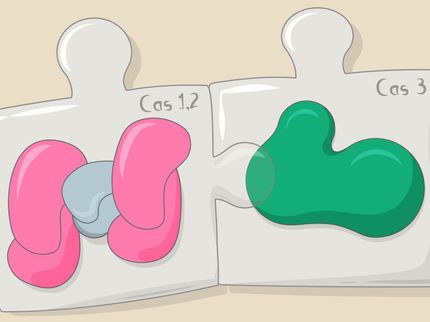Designer protein against hospital germs
Novel preventive agent against multi-resistant bacteria to combat their colonization in the nose
Advertisement
In recent years, HYpharm has worked with university partners and with the support of the German Center for Infection Research (DZIF) to further develop and investigate the active ingredient HY-133.
HY-133 is a novel protein that originally comes from bacteriophages - viruses that only infect bacteria. The Friedrich Loeffler Institute for Medical Microbiology at the University Medical Center Greifswald has extensively tested the substance for its effectiveness. The first clinical phase is now underway to test whether the active substance is safe and tolerable for healthy people.
The active substance is an artificially produced and improved bacteriophage lysis protein that can quickly and effectively eliminate the bacterial infection pathogen Staphylococcus aureus, including multi-resistant strains (MRSA, methicillin-resistant S. aureus), in a highly specific manner. Around one in three people have the bacterium Staphylococcus aureus in their nose. If nasal colonization is treated prophylactically before hospitalization, the spread of MRSA in hospitals and the risk of infection with this pathogen in patients can be minimized.
"Rapid detection and effective elimination of MRSA colonization of the nose before hospitalization is therefore a decisive step in the fight against these hospital germs," says Prof. Karsten Becker, Director of Medical Microbiology at the UMG. In addition, treatment with HY-133 could possibly replace the use of the antibiotic mupirocin, which is commonly used in hospitals. This is also necessary, "because the bacteria in the nose are increasingly insensitive to the antibiotic," Becker continues. The current antibiotic treatment with monitoring also takes around a week - "this is a problem for patients who need to be operated on quickly".
The use of the artificially produced "designer protein" HY-133, on the other hand, can eliminate the infectious agent very quickly and specifically without disturbing the natural bacterial flora (microbiome) in humans. As part of the Phase I clinical trial, the rapid sanitation of Staphylococcus aureus strains in the nasal cavity is now to be tested on volunteers at the project partner at the University of Tübingen. The effects on the microbiome will then be investigated together.
Note: This article has been translated using a computer system without human intervention. LUMITOS offers these automatic translations to present a wider range of current news. Since this article has been translated with automatic translation, it is possible that it contains errors in vocabulary, syntax or grammar. The original article in German can be found here.
Other news from the department science
Most read news
More news from our other portals
Something is happening in the life science industry ...
This is what true pioneering spirit looks like: Plenty of innovative start-ups are bringing fresh ideas, lifeblood and entrepreneurial spirit to change tomorrow's world for the better. Immerse yourself in the world of these young companies and take the opportunity to get in touch with the founders.

























































